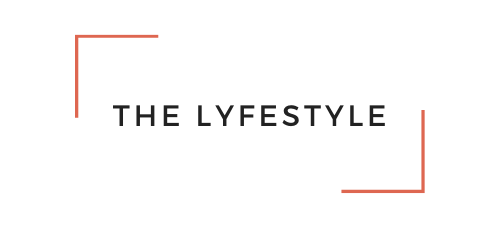Born in a pre-Internet era defined by events like the fall of the Berlin Wall, Gen X is often overlooked in favor of Baby Boomers, Millennials, and Gen Z.
Despite their reputation as the “forgotten generation,” Gen X controls a significant share of the spending in today’s economy.
Expected to outnumber Baby Boomers by 2028, Gen X has entered its peak earning years and now makes up more than half of leadership roles globally. This generation also fared better during COVID-19 than others, with their aggregate net worth going up 50 percent because of equity gains, pension entitlements, and a decrease in their share of consumer debt.
As they proceed into middle age and inch toward retirement, Gen X’s focus lies on ensuring they have secure financial assets and the health to help them make the most of their golden years.
In this blog, we’ll examine some of the beliefs that motivate these focuses for Gen X and how companies can cater to those values.
1. Supplements Make a Difference in Health (77%)

While Gen Z and Millennials might be fueling the wellness market explosion, Gen X health and wellness consumers also hold their own.
More than three-quarters of Gen X agreed with the statement “I believe that supplements such as vitamins and minerals can make a difference in my health.”
CDC data backs this up. 59.2% of US adults aged 40 to 59 used dietary supplements between 2017 and 2018. They were only beaten by the Boomer+ generation in their consumption of supplements.
This offers an opportunity for brands to fine-tune their product and promotional ideas to capture Gen X consumers who are focused on health and wellness.
Some businesses are already practicing this. The re-emergence of 80s and 90s aesthetics, including fashion, have struck a chord with Gen X in a major way in recent years. According to National Geographic, part of this could be because the COVID-19 pandemic prompted a turn to nostalgia, especially for Gen X, “as a stabilizing force and a way to keep in mind what they cherish most.”
As Gen X ages, the health & wellness industry may find their mark among the generation by harkening back to the “good old days” where life felt simpler and easier for today’s business leaders.
2. Staying Active Is Important (71%)

Almost three-quarters of our Gen X survey respondents said they like to stay active. Considering their interest in the health benefits of supplements, this makes a lot of sense.
Not only is Gen X controlling the nutrients that their bodies get — they’re also engaged in maintaining a certain level of fitness. Motivations could range from staying fit purely to stay healthy to staying healthy for the sake of children and beyond.
According to at-home workout company Les Mills On Demand, Gen X health and wellness motivation mainly centers on improving fitness. Pre-pandemic data from IHRSA Health Club Consumer Report showed that Gen Xers are health club loyalists.
These facts combined with their higher income levels makes Gen X health and wellness enthusiasts more likely to be able to invest in personal training, bootcamps, and group fitness classes.
The generation’s nostalgia factor can also give health and wellness brands a strong starting point when it comes to appealing to this interest in Gen X. 80s and 90s fads like jumprope, rollerblading, and breakdancing could all play naturally to this generation’s desire to stay active.
3. Products with Health Benefits Are Worth the Money (67%)

As our research showed us, two-thirds of the generation believes that it’s worth spending money on products with health benefits.
This is somewhat expected, as Gen X’s earning levels provide more disposable income to purchase health & wellness products with higher price tags.
Living Facts by Pew Research shows that in addition to Gen X boasting the highest incomes after taxes compared with all other generations, they also spend the most, in part thanks to their generational trend of saving and investing in favorable markets.
But Gen X health and wellness consumers won’t spend their hard-earned money on just anything. They expect value, fact-based product information and items that are fun and, if food-based, yummy.
Our research shows the most common communication approach Gen X health and wellness shoppers respond to across marketing channels is informational facts/figures, so start from this basis in your marketing campaigns.
4. Mental Health Is a Priority (66%)

During our research, we discovered that 66% of Gen X says they prioritize mental health.
There could be a variety of reasons for this. For example, in 2021, 22% of Gen Xers said they feel stress daily, followed by Millennials at 17%, Gen Z at 14%, and Baby Boomers at just 8%.
And in an American Psychological Association survey, a third of Gen Xers reported their mental health had gotten worse throughout the COVID-19 pandemic.
This plays well into the Gen X archetype of craving stability and the status quo. Consistency and predictability are important factors to any person’s mental health, and they can both feel far out of grasp when something like a global pandemic begins to impact daily life.
The loss of the ability to travel places, practice social activities, and more all weighed on the mental health of consumers, regardless of generation. But Gen X, as both parents and providers for their own retired parents, may have felt this burden at an exceptionally intense level.
After all, this would’ve meant transitioning to work-from-home careers (at least temporarily), managing at-home school schedules with children, and a host of any other challenging details.
So as we’ve learned in 2022, 66% of Gen X is prioritizing their mental health — and likely for good reason.









